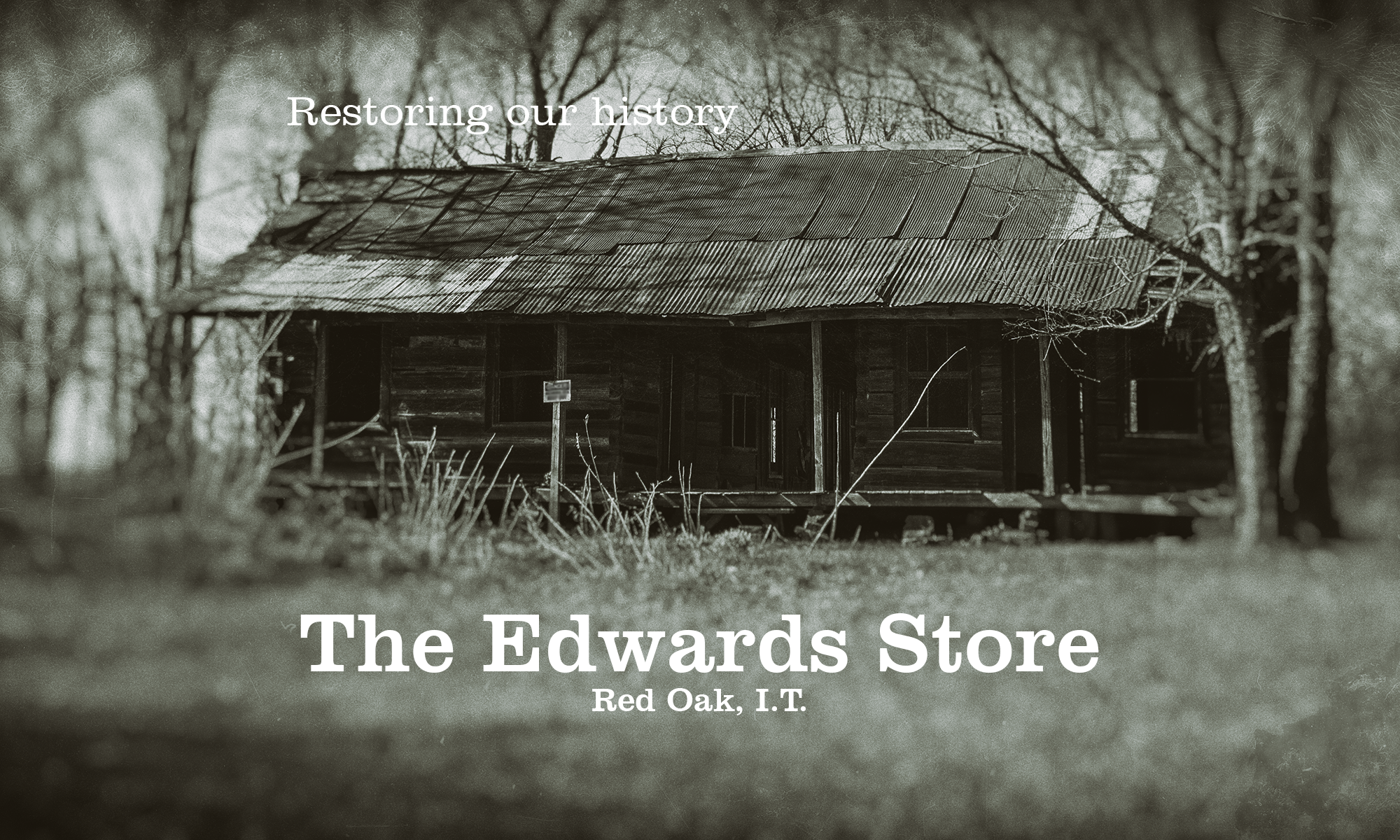The history of the cabin is the history of the Indian Territory and later Oklahoma, as lived by Mr. Edwards and the Hardaway family.
The very location of the cabin is significant. It sits on the Fort Smith to Boggy Depot road that was the path for many Choctaw natives into the Territory during the “Trail of Tears” relocation.
Soon after the Edwards established their residency at the cabin additional structures were erected and a store established. In 1858 the site became a meal stop on the Butterfield Overland stage line that traveled through Indian Territory on the Fort Smith to Boggy Depot road. The stage carried passengers and the U.S. Mail from St. Louis to San Francisco.

The Civil War brought an end to the Butterfield stage operation, but the Edwards Store continued to be a waypoint for travelers and a source of supplies for local farmers for another half century. In 1868 it was established as the first post office for Red Oak, Indian Territory and served in that capacity until the community was relocated to its present location seven miles southwest in the 1890s.

The store served as a local stage stop in the late 1800s and was an embarcation point for fugitives and outlaws captured by deputy U.S. Marshals and taken to the federal court in Fort Smith, Arkansas for prosecution. Mr. Edwards served on occasion as witness in the court of U.S. District Judge Isaac C. Parker in Fort Smith.

Jesse Hardaway, the nephew of Edwards and Nancy Hardaway, assisted his uncle and aunt in The Edwards Store and inherited the business following their deaths in 1883 and 1888, respectively. Mr. Hardaway also served as the local justice of the peace and became a prominent citizen in the Red Oak area.
The store ceased operations shortly before Oklahoma statehood. Jesse’s youngest son, Edgar, and daughter in law Lula, occupied the cabin until 1981.
In 1971, the Edwards Store was added to the National Register of Historic Places.
The site is privately owned by E.C. Guyton, Chrissy K. Dickmeyer and Brian J. Gray, all direct descendants of Jesse Hardaway. Edgar Hardaway is E.C.’s grandfather and Chrissy and Brian’s great great grandfather.
Great State: Oklahoma’s First Convenience Store. G. Culver, KFOR.
